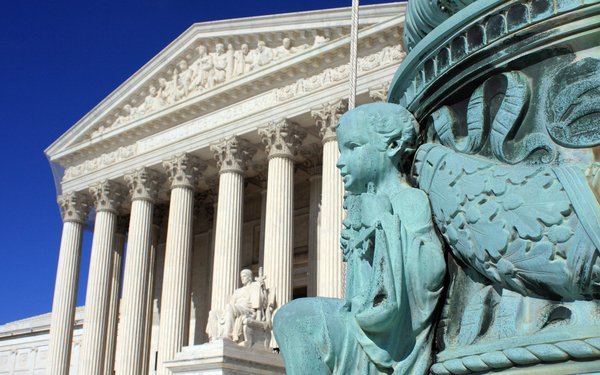
The Supreme
Court should vacate Google's $8.5 million settlement of a privacy class-action lawsuit on the grounds that the deal doesn't compensate Google's users, class-action activist Ted Frank argued in papers submitted Monday.
Frank, who founded the Center for Class Action
Fairness, is challenging the settlement's terms, which require the search company to donate $5.3 million to six nonprofits -- Carnegie Mellon University, World Privacy Forum, Chicago-Kent College of
Law, Stanford Law, Harvard's Berkman Center and the AARP Foundation. The deal also calls for Google to pay more than $2.1 million to the attorneys who brought the lawsuit, with the remainder of the
settlement fund going to court costs.
advertisement
advertisement
Frank contends in a new Supreme Court filing that this structure is "a clear abuse" because some of the proposed recipients had prior relationships with
Google and lawyers representing the plaintiffs.
"All the money went to class counsel and to favored nonprofit organizations affiliated with class counsel and the defendant," he argues. "It is
not fair or reasonable ... for class attorneys to arrogate millions for themselves and nothing for their clients."
He notes that Google has independently given money to the Stanford Center for
Internet and Society, adding that its "scholars regularly support Google’s positions on a variety of policy issues, including privacy litigation."
The settlement resolved a 2010
class-action complaint alleging that Google violated users' privacy by including their search queries in "referer headers" -- the information that's automatically transmitted to sites users click on
when they leave Google. Some queries, like people's searches for their own names, can offer clues to users' identities. (Google no longer transmits search queries when people click on links in the
results.)
A trial judge and the 9th Circuit Court of Appeals rejected Frank's attempt to challenge the settlement. Frank then asked the Supreme Court to consider his arguments.
Google,
Facebook and Netflix are among companies that have resolved privacy class-actions by agreeing to donate money to nonprofits. For instance, Google recently agreed to donate more than $3 million to to
six schools and nonprofits to settle a lawsuit alleging that it violated Safari users' privacy by circumventing their no-tracking settings. (Frank recently brought a separate challenge to that
settlement.)
Several years ago, Netflix agreed to pay $6.5 million to a
total of 20 nonprofits in order to resolve allegations that it violated the federal Video Privacy Protection Law by storing information about consumers' rental histories for at least two years. And
Facebook agreed to settle a lawsuit stemming from its Beacon ad
program -- which told people about their friends' e-commerce activity -- by paying $6.5 million to fund a privacy organization.
Frank argues that companies shouldn't be able to settle
class-action lawsuits by making donations to charity, if it's "feasible" to pay class members in cash.
He argues in his court papers that those types of settlements -- called "cy pres" -- only
"create the illusion of relief" for class members, while also potentially benefiting the companies that were sued. "Even if class-action defendants like Google and Facebook ultimately receive no
direct benefit from cy pres awards, they still are able to take credit for their charity," he writes.